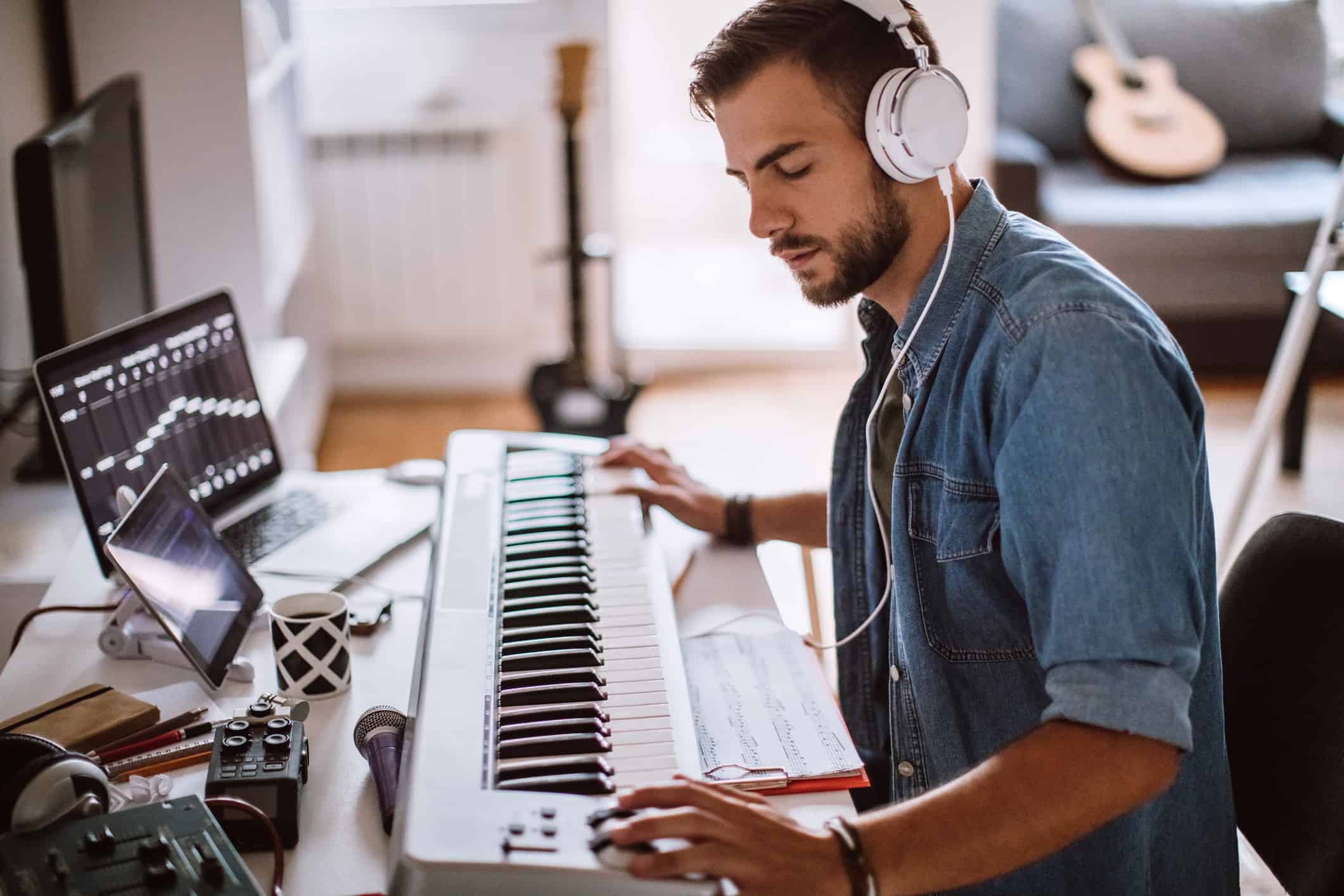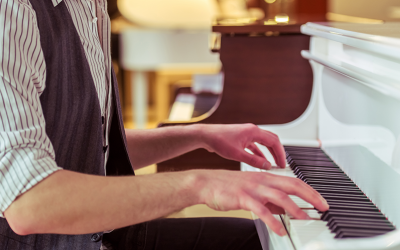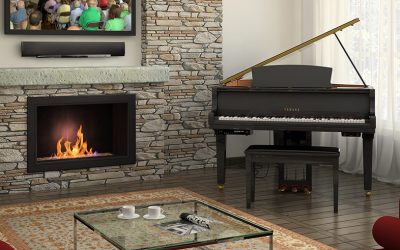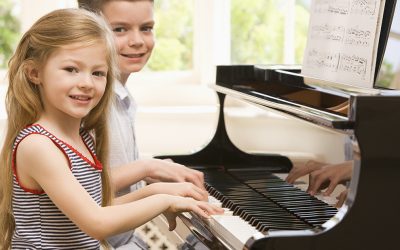
If you’re new to the world of music or considering an upgrade from your current instrument, you might be wondering about the differences between a keyboard and a digital piano. While both instruments share similarities, they also have distinct characteristics that cater to different musical needs and preferences. In this blog post, we’ll explore these differences to help you make an informed decision.
Is a Digital Piano Different from a Keyboard?
A digital piano and a keyboard are distinct musical instruments, each tailored to different musical needs. A digital piano is designed to closely mimic the sound and feel of an acoustic piano. It typically features high-quality piano samples and weighted or graded hammer-action keys, providing an authentic piano-playing experience. Digital pianos prioritize delivering a realistic piano sound and touch, making them ideal for pianists who want to learn, practice, perform, or compose music on the piano.
Conversely, a keyboard is a versatile instrument known for its wide range of sounds and features. While some keyboards can emulate piano sounds, they often prioritize flexibility, offering various instrument sounds, rhythms, and effects. Keyboards are suitable for musicians exploring different musical genres and styles and are favored by beginners, hobbyists, and professionals alike due to their portability and adaptability to various musical contexts.
Differences Between a Digital Piano and a Keyboard
Digital pianos and keyboards differ in their manufacturing and uses. Digital pianos are meant to emulate and enhance the experience of using a high-quality acoustic piano, while a keyboard is used for portability and, often, a greater diversity in sound and effects.
1. Sound Quality and Authenticity
One of the most significant differences between a keyboard and a digital piano is the sound quality and authenticity. Digital pianos are designed to closely replicate the sound of an acoustic piano. They often use advanced sampling technology to capture the nuances of a grand piano, including the variations in tone and dynamics. This results in a more authentic and expressive piano sound.
This is most pronounced in high-quality digital pianos such as the Yamaha Clavinova CVP-805, which features nuanced sound sampling from two of the top concert grand pianos worldwide, the Yamaha CFX and Bösendorfer Imperial. Digital pianos will also offer additional instrument sounds, and in higher quality digital pianos, these sounds will have phenomenally detailed nuances such as breath sounds in wind instruments.
Keyboards, on the other hand, prioritize versatility and portability over sound authenticity. While they can produce piano sounds, they put just as equal a focus on additional instrument sounds, including synthesizers, strings, and more. The piano sound on a keyboard may not be as rich or realistic as that of a digital piano.
2. Key Action
Key action refers to how the keys on the instrument respond to touch and how closely they mimic the feel of an acoustic piano. Modern digital pianos are designed with weighted or semi-weighted keys to replicate the resistance and feel of traditional piano keys. Technologies such as the Yamaha GrandTouch™ Keyboard with 88-key linear graded hammers have such a realistic touch and feel that pianists can play with the same nuanced expression as with a high-quality grand piano.
Keyboards usually have non-weighted or semi-weighted keys that are easier to play quickly but lack the authentic piano touch. For pianists looking for a piano-like feel, a digital piano is the better choice.
3. Number of Keys
Another significant difference between digital pianos and keyboards is the number of keys. Digital pianos typically have a full 88-key keyboard, matching the standard size of an acoustic piano. This is essential for those who want to practice classical piano pieces or develop their piano skills.
Keyboards come in various sizes, but many have fewer than 88 keys, making them more compact and portable. This is ideal for musicians who need a versatile instrument for live performances, studio work, or music production.
4. Portability
Portability is a key consideration when choosing between a keyboard and a digital piano. Keyboards are generally lighter and more compact, making them easy to transport and suitable for musicians on the go. They are a popular choice for gigging musicians and those with limited space at home.
Digital pianos, while still movable, are heavier and bulkier due to their authentic piano-like design. They are better suited for stationary use in a home, apartment, or studio environment.
5. Price
Price is often a deciding factor for many musicians. Keyboards tend to be more affordable than digital pianos, making them a budget-friendly option for beginners or those with limited funds. Digital pianos, with their higher-quality sound and key action, are usually more expensive but offer a more authentic piano-playing experience.
Final Thoughts
Choosing between a keyboard and a digital piano ultimately depends on your musical goals, preferences, and budget. For pianists looking for an instrument that closely replicates the look, feel, and sound of an acoustic piano, a digital piano provides a much better replication of these qualities than a keyboard does. On the other hand, for versatility, portability, and affordability, a keyboard might be a better fit.
You may also be interested in...
Guide: How to Define the Sound of a Piano
Are you looking to purchase a new or used piano and wondering how to describe the piano sound you want to find? Or perhaps you are selling a used piano and unsure the best words to describe the sound of your piano? This guide can help! What words describe the sound...
15 Questions to Ask When Buying a New Piano
15 Questions to Ask When Buying a New Piano It can be exciting to buy a new piano for your household! If it's your first time buying a piano or if you're preparing to find the best piano for your needs, this list of questions to ask when buying a new piano can help!...
Piano Sale – Up To $1000 Rebate on Select Yamaha Pianos!
Huge Piano Sale in Utah Going on Now - up to $1000 Rebate on 20+ Piano Models! This February, Piano Gallery is teaming up with Yamaha to provide HUGE rebates on new Yamaha Piano purchases. Receive up to $1000 rebate on select Yamaha pianos if purchased...
Digital Piano Vs. Acoustic Piano – What to Consider
When you're looking to buy a piano, you may be overwhelmed with options. Should you buy a new or used piano? What size of piano should you buy? What is the best piano brand in your price range? One of the most common questions we are asked is what the benefits are of...
Piano Terms, Sizes, & Styles
Acoustic Piano Acoustic pianos are traditional pianos that use metal strings, soundboards, and hammer to produce sound through vibration. Vertical Pianos Instead of strings resting horizontally as in a grand piano, vertical pianos have vertical soundboards and...



